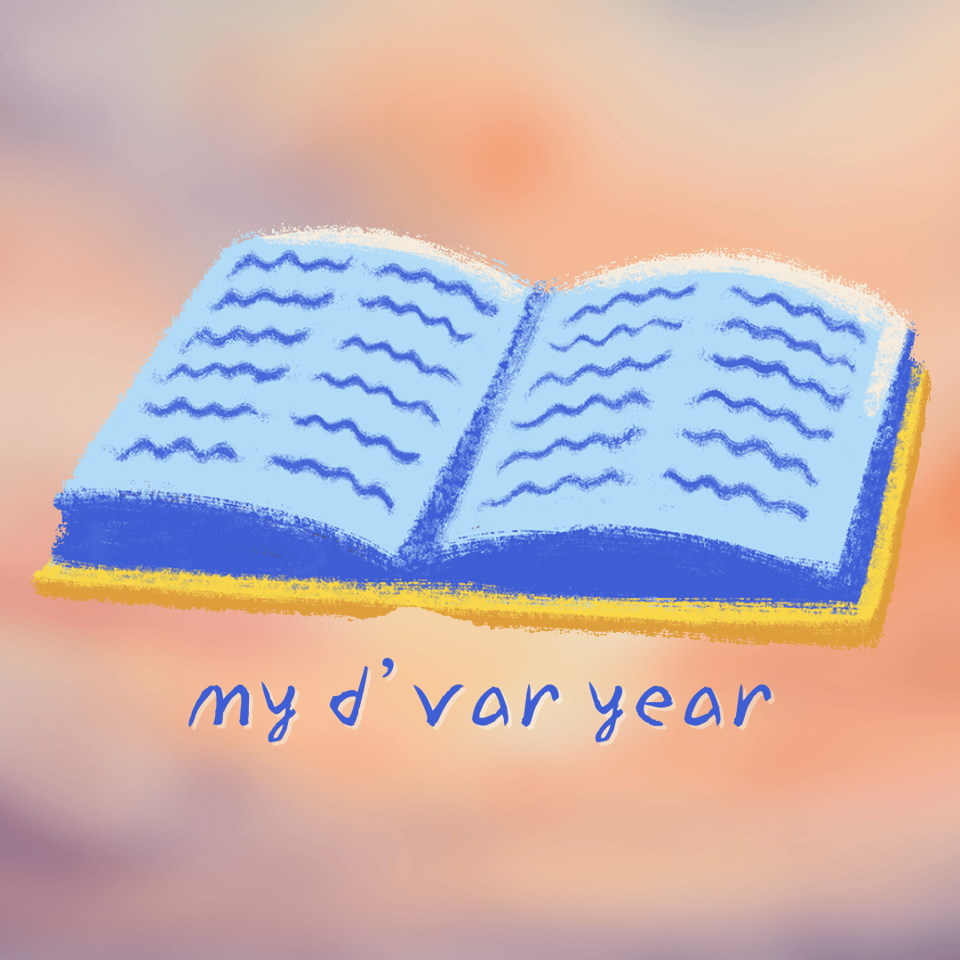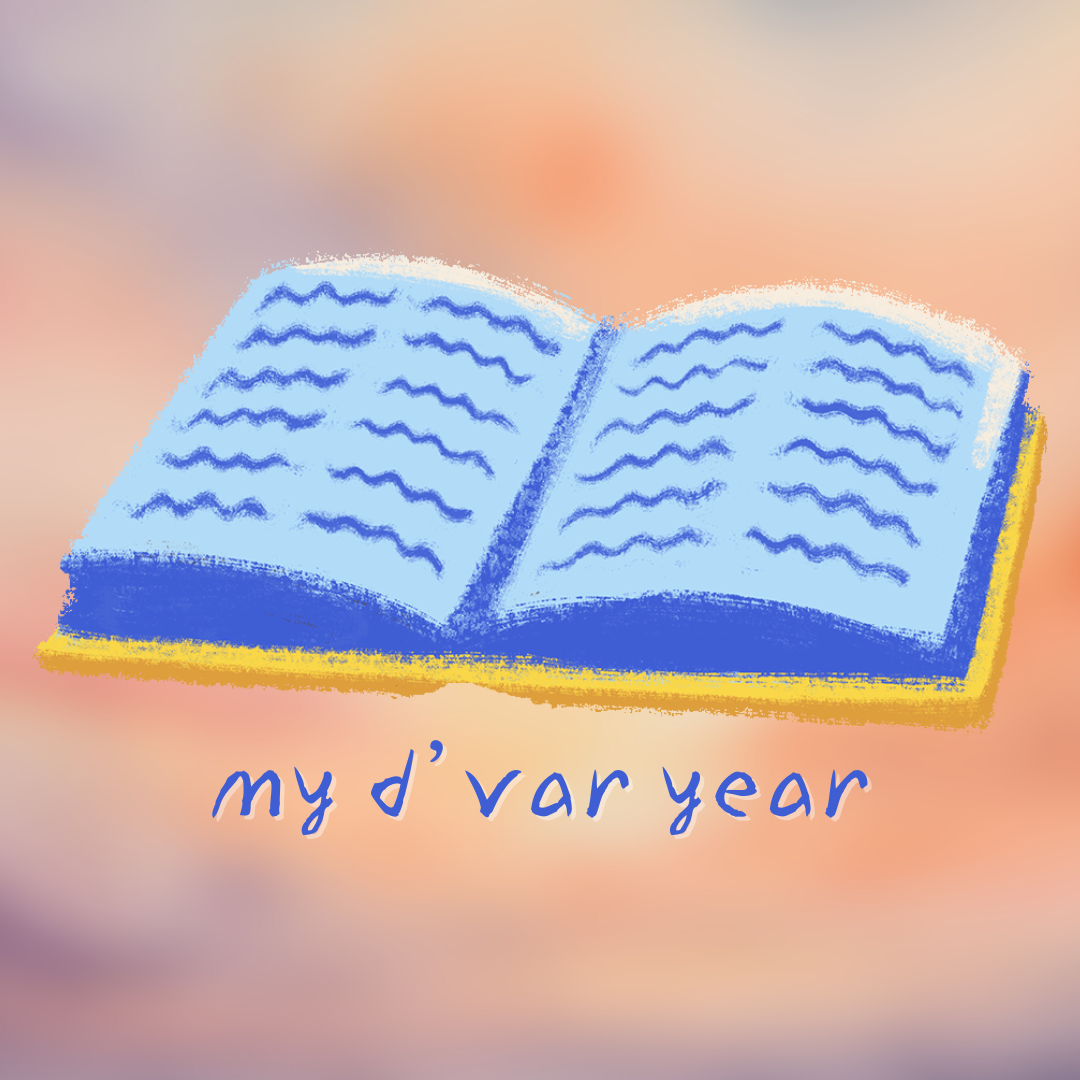introduction: what this is all about
An introduction to what we'll be doing here.

you might be gathering why i wondered all of you here today. or maybe not, since you could only see this if you’re subscribing to it. if so, thank you! this is really a test of my vulnerability to share my writing so openly with other people. i am normally very private with what i am writing, so to take that chance on me is a kindness i can never fully repay you.
the original title for this extended experiment was d’var she blows, which i thought was a) nautical themed which means i instantly love it and b) a pun on thar she blows which i found to be infinitely clever. my lovely partner (sincere tone) disabused me of this notion within seconds of me announcing it to them. since they are just about to head to rabbinical school at the time of this writing, i decided it was not a good idea to try and deny their level of expertise when it comes to this sort of thing.
my credentials are: i don’t have any! i am jewish, i had my b’nai mitzvah at the proper time (a joke, because there is no wrong time to have one), and everything else besides, but do we really want to gatekeep here? this is meant to be a space for myself to rid myself of all the exclusivity and the gatekeeping and the feelings of inadequacy that plague so many of us in the diaspora. i wish it was just jewish boomers who perpetuated this, but there are unfortunately people younger than me who are giant assholes about being “jewish enough.”
what i am doing: the challenge is to do something i have already done before (read each parshah) and to do something i haven’t (writing a d’var about each one).
a d’var literally just means “word of Torah,” and any jewish person can write one! that’s sort of why i’m trying to do this. each year, i try to read a different version of the parshiyot so i’m never doing the same thing twice. the first time i did this was in 2018, and i used a resource called sefaria to read each week’s portion, complete with centuries of commentary that came along with it. this is a fantastic resource for anyone who is just beginning their judaic journey or restarting it. whether you are born to it, matrilineal or patrilineal or jew by choice, it’s something i recommend you take a glance at.
after the first year, i realized that if i just did the exact same thing i did the previous year, i would never be able to finish anything. and yet, that is the exact mistake i made, and so it was not until 2021 that i picked it up again, reading from a book called torah queeries that framed each parshah from a queer lens. a lot of the language in that book is outdated now, but it is highly worth reading if you are queer and jewish.
oh yeah, speaking of which, i go on a million tangents when i write, which is why i often get nervous about sharing my writing with other people. i will tell you only this about myself for right now: once upon a time, i completely abandoned jewish practice for ten years, and what brought me back was (of all things) a twitter thread.
that twitter thread was written by someone called rabbi danya ruttenberg (linking to her website so you can read some of her latest wisdom, i do not know her personally but i am a big fan of her work!). the original thread is now gone, and i wish i had saved it. the thread talks about the concept of Adam HaRishon, a Talmudic interpretation of the classic garden of eden story where adam and chava (eve) were created combined into one entity. “male and female, he created THEM,” so goes the interpretation. Adam HaRishon is one genderless and infinitely gendered being conjoined at the hip, and it is the separation of them into two parts that creates adam and chava. she goes on to talk about how joseph and his sister dinah switched bodies in their respective wombs, another piece of midrash, and i feel something click in my head. i had spent my entire life in these institutions run by old bitter men who hated everybody and nothing i did was good enough for any of them, and so i ran away. i ran away like so many of us run away, like moses ran away and like jonah ran away.
hashem often chooses those who seem, at first glance, to be the worst suited to a particular task. it chooses those who everyone else gives up on or forgets. continually, over and over again in torah, hashem chooses the people who no one else will choose. i do not claim to be on any level comparable to my brethren in the tanakh, nor do i think i was chosen for some giant task like that. i don’t even think i was chosen to write this. but i do think i was chosen to read those words when i did, in a time where all i could do was despair. in a heartbeat, i thought clearly in my head, “there is a place for me here.” there was a place for me here because centuries ago, the sages had all determined that my kind of person was just as b’tzelem elohim as everyone else. there was room for jews who did things imperfectly and jews who could not fit themselves in the tiny boxes their ancestors demanded of them. there was room for radicals and heretics. there was room for trans queers and the disabled and the neurodivergent (speaking plainly as all three). there had always been room for these people. there had been room for david and jonathan falling in love, and naomi and ruth. there was room for each and every angel transcending the boundaries of gender altogether. there was room for everything. we had given up so much in our desperate attempts to assimilate into white christian hegemony here in the states. i can’t speak for anywhere else in the world, but the same seems to be the case throughout the diaspora from the conversations i have been grateful to have.
obviously, not all of that came to me in that moment, but there was the realization that jews like me had always existed. the more i walked through the world, through the start of covid, the dismantling of our rights, the installment of one autocratic regime after another, the more it seemed every jew i met was as lost as i was. as the genocide escalated in gaza, as our palestinian comrades were starved and bombed in our name even as millions of us begged for it to stop, we were lost.
in that moment, in 2018, all i had was the spark. and that led me, very slowly, to rediscovering judaism on my own terms, free of the crushing repression of shul at its most patriarchal and narrow-minded. it’s ironic that i say this and yet the person i fell in love with is training to be a rabbi, but in all fairness, they are not a traditional kind of rabbi and that is what i love so much about them. we have our disagreements as far as what faith and practice looks like to us, but i have never felt disrespected by them. i think falling in love with a future rabbi is another great irony. i fell in love with a future rabbi who actually had a moment where they heard hashem’s voice, and felt called to the rabbinate.
anyway, i hope that explains why i will be doing this, week after week. the intention is not to prove to you how much i know, because it will only prove how much i don’t know. i am guaranteed to be learning what i learn almost at the same time i share it with you. think of me as someone digging and exploring my heritage as a layperson and sharing what i have found. i hope what i say resonates with you enough to continue traveling this path with me. i hope that it can inspire you to do the same, or tell me what you think something means. there are fourteen million and counting possible interpretations of judaism and everything it entails, and i am just one of them.
If you’ve enjoyed this and want to read more, please subscribe below!
